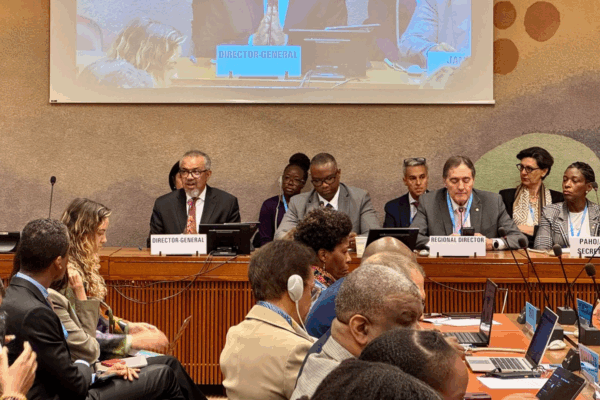Check out the latest news articles, research and progress to tackle air pollution around the world.
Air pollution linked to cancer-promoting mutations in ‘never-smokers’
A new study found a correlation between the level of air pollution in a region and the presence of cancer-promoting mutations typically associated with smoking. Researchers say this could partly explain why those who have never smoked make up a rising proportion of people developing cancer.
Black carbon emissions greatly underestimated in lower income countries
A new study has shown that global data inventories vastly underestimate black carbon emissions in low- and middle-income countries – in some places by up to 38%. Drawing on data from the SPARTAN Network, this Nature study underscores the need for comprehensive, accurate data to ensure no one is left behind in efforts to combat dirty air and climate change.
Blueprint for UK government action on air pollution
Healthy Air Coalition UK has developed a new blueprint to deliver cleaner air in the UK. It calls for stronger, science-based air quality targets based on WHO recommendations and provides practical solutions to reduce harmful emissions.
Focus on how air pollution harms the brain
Newly published research adds to the growing body of evidence on the impact of air quality on the brain. Long-term exposure to air pollution may play a role in the development of certain brain tumours, according to research from the Danish Cancer Institute which followed nearly 4 million adults from 1991.
Exposure to higher levels of air pollution during mid-life is associated with slower processing speed, lower scores on a cognitive screening tool, and differences in brain structure later in life.
And a study based on the data of 29 million people found exposure to air pollution increased dementia risk, with PM2.5 (particulate matter) and black carbon (soot) having the most significant effect.
WHO science and policy series on air pollution, energy and health
The World Health Organization (WHO) has launched the first phase of its new science and policy summaries on air quality, energy and health. The summaries aim to equip policymakers with clear, evidence-based insights on poor air quality and climate change. They outline sectoral strategies for clean air, climate mitigation and health protection, aligning with global climate and health agendas ahead of COP30.
Greenpeace calls out plastic-linked air pollution
50 million people in 11 countries are at risk of exposure to hazardous air pollution from living near plastic-linked petrochemical production, according to a new report by Greenpeace International. They’re calling for a 75% cut in plastic production by 2040 to protect people’s health, the climate and environment.
Nordic capitals rated highest for air quality
Stockholm, Reykjavik and Helsinki were rated as the European capital cities with the cleanest air, according to European Environment Agency’s updated City Air Quality Viewer. The tool provides real-time and long-term air quality data from over 3,500 cities.
How to tackle the overlooked super pollutant, tropospheric ozone
Tropospheric ozone remains a blind spot in global climate and development agendas, despite being a triple threat to climate, health and food security. To tackle it, Clean Air Fund CEO, Jane Burston, argues for better integration of super pollutant action into climate plans, air quality strategies, and agricultural and ecosystem resilience efforts.


